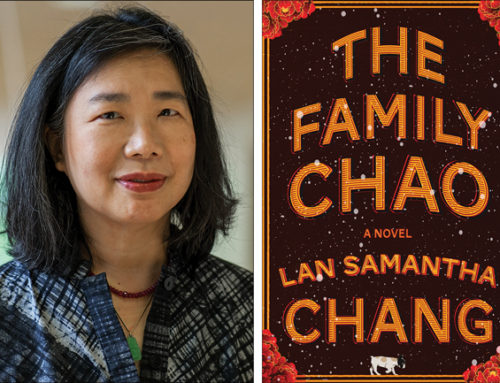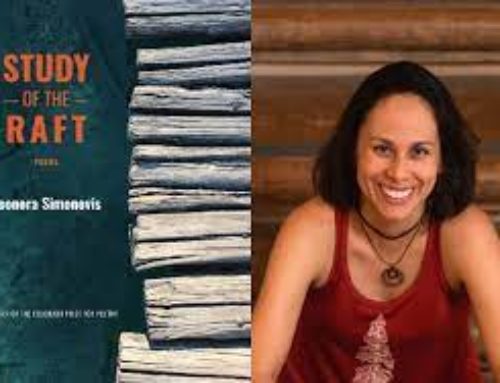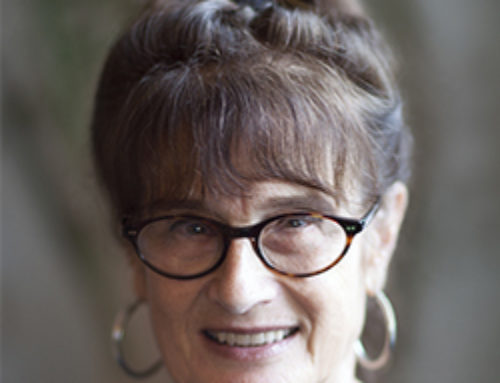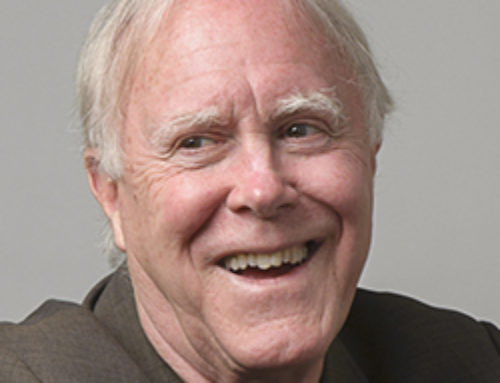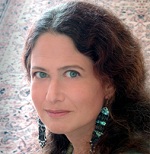 Thanks to poetry assistant Iris Dunkle for updating this profile.
Thanks to poetry assistant Iris Dunkle for updating this profile.
Poet, essayist, teacher, translator: Jane Hirshfield’s writing persona is multi-faceted, her body of work diverse. But if there is a unifying element in her pursuits, it lies in her formative experience as a student of Zen Buddhism, which has guided her writing and led to her engagement with not only the Western canon but with the poetic traditions of Asia and beyond.
Born in New York, Hirshfield graduated from Princeton University as a member of the university’s first graduating class to include women, then practiced Zen Buddhism full-time at a monastery in California for eight years, three of which she served in monastic practice. Her time studying Zen Buddhism shaped her as a poet. As she explains, “I felt that I’d never make much of a poet if I didn’t know more than I knew at that time about what it means to be a human being.”
The precepts of Zen practice have also influenced Hirshfield’s writing directly, in her choice of subject matter, imagery and language. She told the Atlantic Online,
Metaphor isn’t embellishment; its way of thinking came first and abstract thought arose later, along with literacy. And so what may appear to be indirection is in fact a fundamental way that we human beings understand our lives — through language that emerges from the body, from the tastes and sensations and movements and gestures of our own bodies and from the body of the earth all around us. In poetry, as in Zen practice, experience comes first. My job as a human being as well as a writer is to feel as thoroughly as possible the experience that I am part of, and then press it a little further. To find out what happens if I ask, ‘What else, what next, what more, what deeper, what hidden?’ And to keep pressing into that endless realm, in many different ways.
Steven Ratiner, writing in the Washington Post, described the Eastern influence on Hirshfield’s poems, saying they are “in the spirit of the T’ang Dynasty masters such as Wang Wei, whose spiritual outlook was wholly ingrained in the simplest practices of daily life, a reflected light emanating from the landscape.” He continued,
By paring down the moment to its essential elements and allowing ephemeral thoughts to be anchored within the tangible things of the world, Hirshfield comes up with poems that brilliantly portray even mundane experiences as if they were nothing short of revelation. … the poems are so open-hearted and marvelously conceived that they are not just beautiful themselves but effortlessly contain beauty.
One finds an example of this in Hirshfield’s poem “The Supple Deer”, where the speaker ruminates on the idea of a deer’s entry into her yard through an 18-inch gap in the fence. “Antlers to hind hooves,/four feet off the ground, /the deer poured through it.” Hirshfield’s speaker reflects on the metamorphosis of the deer as it leapt fluidly and transformatively. “I don’t know how a stag turns/into a stream, an arc of water.”
When the poem ends though, it ends on a moment of rumination, like a bell that’s been rung whose sound still resonates. “I have never felt such accurate envy. /Not of the deer—//To be that porous, to have such largeness pass through me.”
In her first two collections, Alaya (1982) and Of Gravity & Angels (1988), winner of the California Book Award in Poetry, Hirshfield took her personal experience and the inspiration of nature as her subject matter. The poet Theodore Weisse wrote of Of Gravity & Angels, “Jane Hirshfield’s is a brave, new voice that, finding itself in its first volume, now goes on to ever more searching music. Brave in its nakedness, her work like a lucid stream enjoys itself as it keeps its surefooted course.”
For her third volume, October Palace (1994), Hirshfield adopted a more objective tone, moving from “I” and “we” to a stance of removal and observation. She told the Montserrat Review,
Novalis once said that we spend the first half of our lives developing the self and looking inward, and the second half going beyond that, looking outward. Both are necessary. … Some poets – fine poets – stay always in the personal; and as we know, the personal, if clearly seen, is also the universal human condition. Such poems are not in any way ‘lesser.’ But there is also something liberating and powerful in the poem that speaks through the outer image, story, perception. Nothing is ever ‘outside’ the self, really – but how expanded is the self that encompasses the story of other forms of being within its own heart.
The Lives of the Heart (1997), Given Sugar, Given Salt (2001) and After (2006) have continued Hirshfield’s gravitation toward the contemplative, even as the subject matter remained deeply personal — spanning love and loss, grief and aging. Hirshfield told the Atlantic Online,
It’s easy to say yes to being happy, but it’s harder to agree to grief and loss and transience and to the fact that desire is fathomless and ultimately unfillable. At some point I realized that you don’t get a full human life if you try to cut off one end of it, that you need to agree to the entire experience, to the full spectrum of what happens.
San Francisco Chronicle reviewer Carmella Ciuraru wrote of Given Sugar, Given Salt, “The poems in this collection are hopeful without being sentimental. Most of all, they are consoling and wise.” While of After, which won Britain’s T.S. Eliot prize, Booklist wrote,
Keenly aware that there is much in the universe we’re unable to detect and that we have little control over our fate, Hirshfield considers amplitude and chance in poems of exquisite restraint and meticulous reasoning, including a striking meditation on the paradoxical richness of spareness that can serve as her ars poetica.
In tandem with creation of her own original poems, Hirshfield has also worked as a translator, bringing to light the works of Japanese poets Ono no Komachi and Izumi Shikubu, the 15th-century Indian poet Mirabai and others. The work of translation has informed Hirshfield’s own poetry, as she told the Atlantic:
Discovering that I could make eight radically different translations of one poem, with each reflecting some part of what was held in the original, freed me from having such an anchored idea of what a poem is. That part of the process taught me to value a greater openness and playfulness of mind in meeting a poem, and also liberated me from the idea that there is only one right response to anything — perhaps from the idea that there is a “right” response at all. It also brought me to a much greater freedom in revising my own work. I understood more fully that there may be a core, inchoate experience you’re reaching for, but that there can be many different ways to reach it.
She has also written a book of essays, Nine Gates: Entering the Mind of Poetry (1997), which she told the Montserrat Review aimed to “explore the deep understructures of poetry, to make my own map of its powers – which are in the end always mysterious and always changing.”
That sense of mystery and discovery govern Hirshfield’s creative process, which she describes in the Atlantic Online as beginning in a state of Zen unkowing, “an utter nakedness of concept or goal. A word appears, another word appears, an image. It is a moving into mystery.” Connecting to the mysterious and inscrutable realms of nature and the heart is poetry’s crucial role in a world dominated by analysis and information, Hirshfield told the Atlantic Online.
The role of the arts, especially in our increasingly technological culture, is to discover and preserve that way of interconnected thinking. If we forget these other parts of being human — the connection of human life to the life of rocks and trees and animals and weather — then we will lose any sense of proportion about how we ought to be in the universe, amid a wider existence.
Hirshfield’s newest collection of original poems, Come, Thief, was published in 2011. She will give a craft lecture on Tuesday, July 30, 2013, on the Upper Valley Campus of Napa Valley College, and will give a public reading Wednesday, July 31, 2013, at the Educational Center for the Performing Arts, Napa Valley College Main Campus, Napa beginning at 6:30 p.m. See the Readings & Lectures page for full details.
More online resources:
- Poets.org profile
- Listen to Jane read her poems, “Each Moment a White Bull”, “For What Binds Us”, and “The Bell Zygmunt”
- An Interview with Jane Hirshfield
- Poetry Foundation profile, including links to poems “A Blessing for a Wedding”, “A Sweetening All Around Me as It Falls”, “All the Difficult Hours and Minutes” and more.



